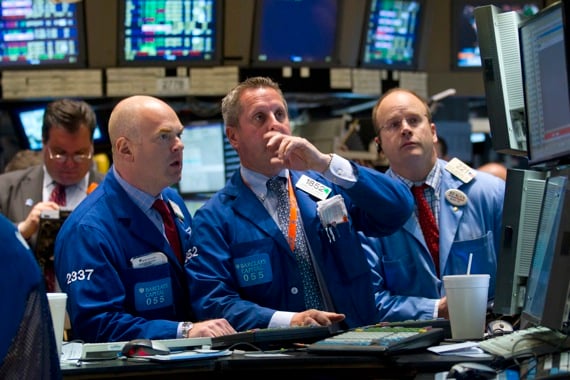Regulators said to be concerned about funds not truly tracking underlying indexes, as well as vulnerability to short sales
U.K. fraud prosecutors are reviewing how exchange-traded funds are marketed and whether they have the proper tools to prosecute any wrongdoing in the industry, a person directly involved with the probe said.
The Serious Fraud Office, which prosecutes white collar crime, hired a consultant to interview bankers and lawyers to determine whether there is a risk that sales of the products may involve criminal conduct in the future. The Financial Services Authority and the Bank of England's Financial Policy Committee have warned of a lack of transparency in the ETF market.
ETFs are exchange-listed products that mirror indexes, commodities, bonds and currencies and allow investors to buy and sell them like stocks. They became more popular in the aftermath of the 2008 selloff that wiped $37 trillion from global equity markets because they carry lower fees than other funds, require lower initial investment than futures, can be traded throughout the day and cover most indexes.
Terry Smith, chief executive officer at London-based inter- dealer broker Tullett Prebon Plc, has said the products often fail to track the underlying asset whose behavior they're designed follow, are exposed to a provider going bankrupt and vulnerable to short-selling.
The mixture of “people buying things they don't understand, complex structures, synthetic structures with counterparty risk, and huge short selling without enough assets in the underlying ETF” to meet demand makes the products sound like “something that we've been through before,” Smith said.
Question Marks
“From the investor's point of view, I think there are question marks over whether synthetic ETFs really are appropriate for all types of the retail marketplace,” FSA Chief Executive Officer Hector Sants said June 24.
Sam Jaffa, a spokesman for the SFO in London, declined to comment. Rachel Cohen, a spokeswoman at the FSA, declined to comment other than to refer to Sants's previous remarks. No specific companies or products have been targeted in the probe at this point, the person said.
“There are a lot of myths surrounding ETFs,” said Alan Miller, founder and chief investment officer of SCM Private, which manages ETFs. “The average ETF has higher levels of transparency, better performance and lower risk than the average mutual funds.”
All the synthetic ETFs that Miller holds are 110 percent collateralized, he said. That compares well with the transparency of the absolute-return fund sector, which has “shocking” transparency, said Miller, the former chief investment officer of New Star Asset Management Group Plc.
Opaque Funding
At a meeting of the interim financial policy committee in June, the group warned that FSA bank supervisors should “monitor closely the risks associated with opaque funding structures, such as collateral swaps or similar transactions employed by exchange-traded funds,” according to a record of the meeting.
Some parts of the ETF market “warrant closer surveillance by regulatory authorities,” the Financial Stability Board, a group of global regulators and central banking officials, said in April.
“Work is under way nationally and internationally to assess whether recent innovations and the related increase in complexity in some segments of the ETF market add to financial system risks,” the FSB said, adding authorities would review whether regulations are needed to address potential shortcomings in transparency at the funds, or in how they manage risk.
Mimic Performance
ETFs are typically designed to mimic the performance of benchmark gauges such as the Standard & Poor's 500 Index. Unlike mutual funds, whose shares are priced once daily, ETFs are listed on an exchange and bought and sold throughout the day. Global ETF assets grew to $1.37 trillion as of February from $74.3 billion in 2000, according to BlackRock Inc., the world's biggest money manager.
“IShares remains concerned that as the market evolves, the diversity of products and their product design on offer from other providers is not always consistent,” said Joe Linhares, head of iShares Europe, BlackRock's European ETF division. “We welcome any regulatory initiative to ensure standards such as robustness, disclosure and transparency” across the sector.
The SFO began a broad probe in 2009 into whether banks sold credit-default swaps and collateralized debt obligations with flawed valuations. The review didn't result in a prosecution, and the agency wants to ensure it is more prepared if there is a crisis in the ETF market, the person said.
The agency is looking more closely at ETFs because they have similar characteristics to the CDOs that helped spark the financial meltdown in 2008, according to the person. Like CDOs, the quality of the underlying assets in synthetic ETFs can be unclear and there is the potential for firms to improperly sell assets that are being heavily short sold, the person said.
SFO director Richard Alderman is seeking legislation to create a corporate criminal liability enabling prosecutors to enforce fraud laws against companies or banks, the person said.
--Bloomberg News--







